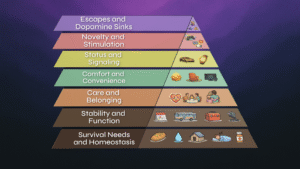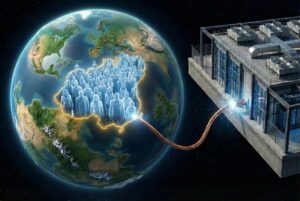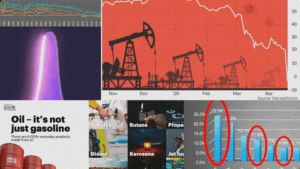
#102 | Frankly
This Week’s Learnings: Corn Sweat, Coral Bleaching, and the Climate Credit Crunch
Description
In this week’s Frankly, Nate shares a handful of things he’s learned in the past few days that have implications for the Great Simplification. Nate covers a wide range of topics in this edition, from the connections between corn sweat and wet bulb temperatures to a timeline of coral reef bleaching events.
Our culture is marked by information overload, which has been expanded intensely by technology. This makes it difficult to absorb the data, narratives, and headlines we are presented—let alone sort through them and examine what is relevant for the Great Simplification scenario. This will perhaps be the first of a regular series where Nate outlines what he has learned recently, and what it means for this work and our lives.
What does it mean to have a “climate-induced credit crunch” across the financial sector? What’s up with the recent tariffs on copper, and what connotations does this hold for the Great Simplification? Why are mental health issues currently more prevalent for liberal-minded individuals, particularly women?
In French, we have a motto that says that a simple drawing is often better than a long explanation. Jean-Marc Jancovici Carbone 4 President
That’s very understandable because with left atmosphere thinking, one of the problems is that you see everything as a series of problems that must have solutions. Iain McGilchrist Neuroscientist and Philosopher
We can’t have hundreds and hundreds of real relationships that are healthy because that requires time and effort and full attention and awareness of being in real relationship and conversation with the other human. Nate Hagens Director of ISEOF
This is the crux of the whole problem. Individual parts of nature are more valuable than the biocomplexity of nature. Thomas Crowther Founder Restor
Show Notes & Links to Learn More
Download transcript01:19 – GMO Corn
01:41 – Corn Sweat
02:14 – Dew Point
02:36 – Wet Bulb Temperature
03:49 – Günther Thallinger
04:32 – Economic Value of Fire-Prone Regions
05:37 – Economic Superorganism (“Economics for the Future – Beyond the Superorganism”)
05:58 – July 4, 2025 Texas Flood, 2024 Florida Hurricane, 2024 California Wildfires, 2024 North Carolina Flooding
06:27 – Copper Tariffs
06:40 – Cost of Copper
07:01 – Copper in Renewables
07:07 – Copper in EVs
07:38 – Bend vs Break (TGS Ep 42 Daniel Schmachtenberger)
07:43 – U.S. Administration and Tariffs
08:41 – International Conference on Tipping Points
08:57 – Amazon Dieback
09:14 – Johan Rockström (TGS Ep 134 Johan Rockström)
09:18 – Coral Reef Bleaching, Coral Reef Tipping Point
09:37 – Ocean Food Web
09:44 – Canary in the Coal Mine
10:03 – Global Coral Bleaching Events
10:46 – World Passed 1.5C
10:54 – Planetary Boundaries
11:30 – Mental Health for People Under 40 in the U.S.
12:07 – Mental Health by Political Ideology and Sex
13:19 – Discount Rate
13:41 – 6th Mass Extinction
13:48 – Animals Feeling to the Poles for More Oxygen
14:23 – Dark Triad, Psychopathy







